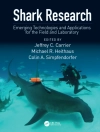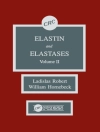This book delves into the multifaceted world of sleep apnea, presenting the latest advancements, challenges, and perspectives in the field. The book covers various topics, including neuro-stimulator use, positive airway pressure therapies, non-PAP and non-surgical treatments, surgical interventions, diagnosis and management of various sleep apnea phenotypes and comorbidities, and special populations such as pediatric and intensive care unit patients. The book discusses the pathophysiology and mechanisms underlying sleep apnea, examining the role of circulating mi RNA as a potential biomarker for diagnosis. It also addresses the adverse health consequences associated with sleep apnea, including cardiovascular disease, diabetes, cancer, and hypertension. Furthermore, the book explores the application of telemedicine and wearable technologies in diagnosing and treating sleep apnea, as well as the impact of external factors such as the COVID-19 pandemic and traffic safety concerns related to sleep deprivation and sleep disorders. The book also highlights the importance of perioperative assessment and management of patients with sleep disorders, the role of REM sleep in sleep disorders, recent advances in sleep during pregnancy and postpartum, and the influence of sleep disturbances on hospitalized and intensive care unit patients. With contributions from experts in the field, this book offers valuable insights into the current state of sleep apnea research and practice, serving as a solid foundation for healthcare professionals, researchers, and students interested in understanding and addressing this prevalent sleep disorder. By providing a comprehensive overview of the field, this book aims to inspire further research and innovation in the diagnosis, treatment, and management of sleep apnea and related sleep disorders.
Tabla de materias
Chapter 1. Neuro-stimulator Use in Obstructive Sleep Apnea-Past, Present and Future.- Chapter 2. Positive Airway Pressure Therapies: Advances of the Decade.- Chapter 3. Advances in Alternate, Non-PAP, Non-surgical Therapies in the treatment of Obstructive Sleep Apnea.- Chapter 4. Perioperative Assessment and Management of patients with Sleep Disorders.- Chapter 5. Central Sleep Apnea: Advances in the last decade.- Chapter 6. Current Clinical perspective of Adult Obstructive Sleep Apnea: Symptomatology; Clinical features / Different Phenotypes. Chapter 7. Is Screening of Obstructive Sleep Apnea necessary? Current Perspectives on Screening/Diagnosis.- Chapter 8. Diagnosis and Management of OSA comorbid with insomnia (COMISA).- Chapter 9. Sleep Tele Medicine during COVID Pandemic and Post-Pandemic period’.- Chapter 10. Wearable Technologies/Consumer Sleep Technologies in relation to sleep disorders-Developments in the last decade.- Chapter 11. Traffic Safety in Sleep Deprivation, Sleepiness, and Sleep Disorders.- Chapter 12. Advances in the Surgical treatments for Snoring and Obstructive Sleep apnea.- Chapter 13. Impact of REM on Sleep Disorders: Current perspectives.- Chapter 14. COVID pandemic impact on OSA and other sleep disorders.- Chapter 15. Sleep disturbances in hospitalized and Intensive Care Unit patients.- Chapter 16. Recent advances on Sleep during Pregnancy and postpartum.- Chapter 17. Updates in Pediatric Sleep Apnea.
Sobre el autor
Prof. Ahmed S. Ba Hammam is a tenured pulmonary and sleep medicine professor at King Saud University (KSU) in Riyadh, Saudi Arabia. He was awarded the KSU Lifetime Achievement Award in 2016 for his significant contributions to sleep medicine research. Prof. Ba Hammam has published 350 scientific articles, 65 book chapters, and a few books on sleep medicine and technology. His research focuses on various sleep-related topics, including hypersomnia, obesity hypoventilation syndrome, central hypersomnolence disorders, the impact of intermittent fasting and mealtime on sleep and circadian rhythm, and sleep monitoring. Prof. Ba Hammam serves as the Editor-in-Chief of Nature & Science of Sleep, the Executive Director of Academic Affairs at the Medical City, King Saud University, and the Director of Prince Naif Health Research Center.
Dr. Mahadevappa Hunasikatti is working as medical officer, in sleep team at Food and Drug Administration, Silver Spring, MD, USA and is a medical director for Mahadeva Sleep Tele Medicine (MSTM). He has completed his residency in psychiatry and obtained diploma in psychological medicine from prestigious National Institute of mental health and Neurosciences, Bangalore, India. After moving to United States, he did an Internship/residency in psychiatry and internal medicine at Medical College of Ohio, Toledo. Later he did a fellowship in critical care medicine at shock trauma center, University of Maryland, Baltimore, MD and a fellowship in pulmonary medicine at Sinai Hospital in Detroit, MI. He is board certified in internal medicine, psychiatry, pulmonary medicine, critical care medicine, sleep medicine and hospital medicine. His main interest includes sleep education, regulation of sleep medical devices, sleep tele medicine, sleep research and policy.












